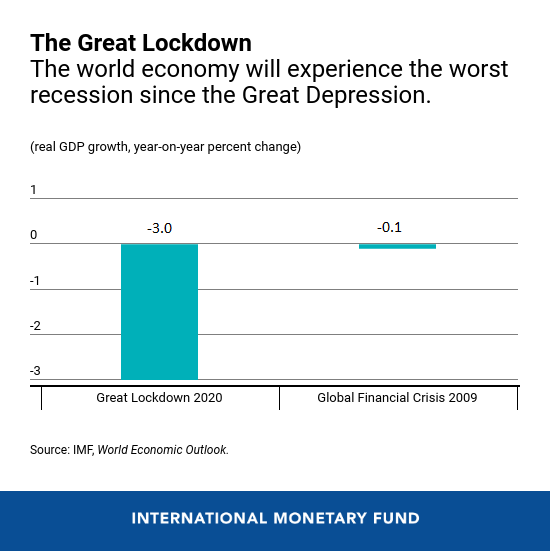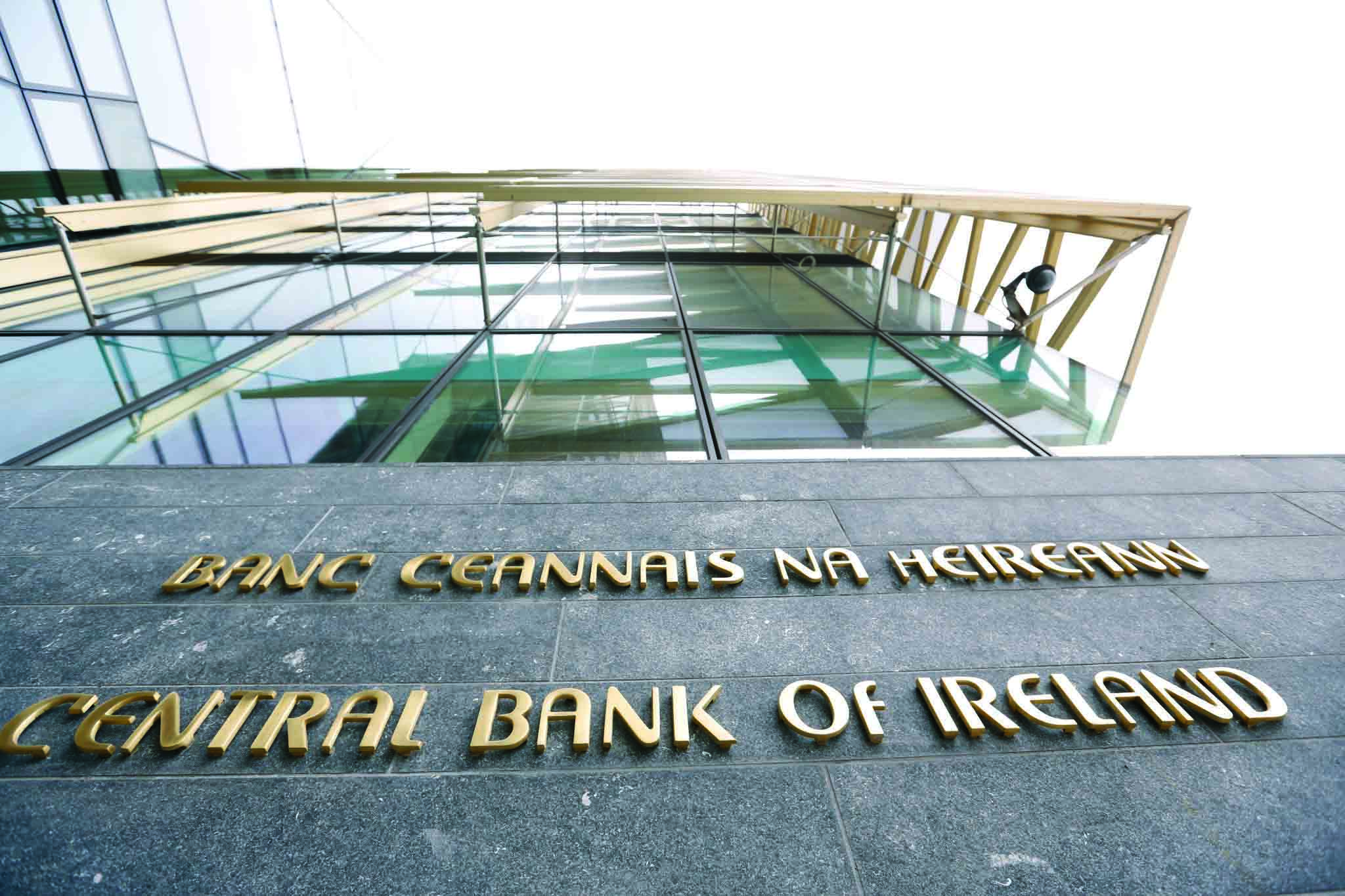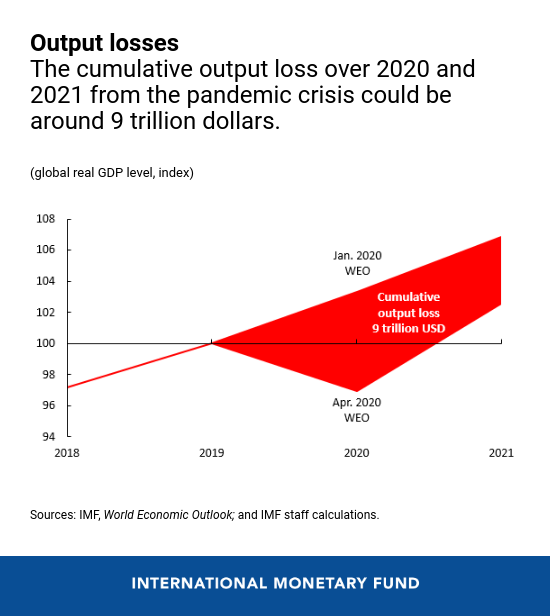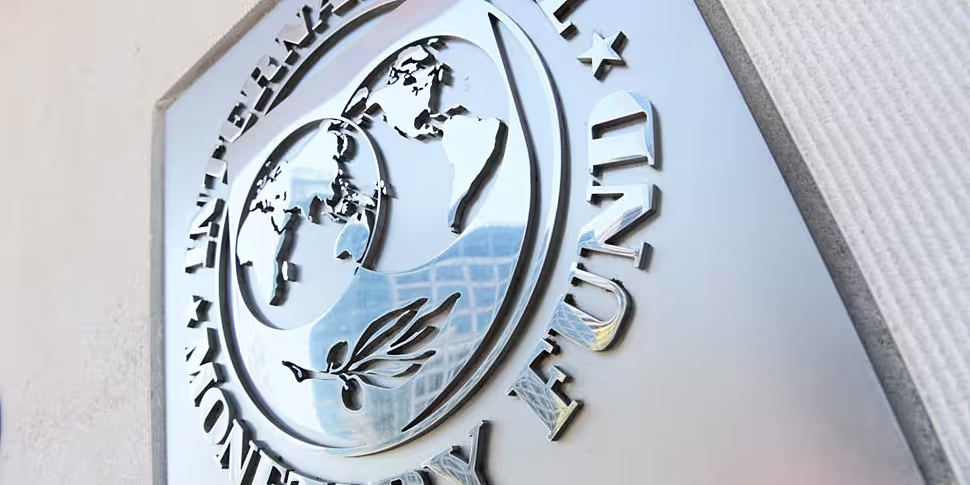The International Monetary fund has warned that the world is heading for the worst recession since the Great Depression of the early 1930s.
In its latest World Economic Outlook, the IMF said the COVID-19 outbreak has led to an almost unprecedented collapse in activity.
 The IMF World Economic Outlook for 2020. Image: IMF
The IMF World Economic Outlook for 2020. Image: IMF“As countries implement necessary quarantines and social distancing practices to contain the pandemic, the world has been put in a Great Lockdown,” said IMF Director of the Research Gita Gopinath.
“The magnitude and speed of collapse in activity that has followed is unlike anything experienced in our lifetimes.”
It said the global economy would contract by 3% this year – provided the outbreak and measures put in place to contain it peak in the coming months and recede in the second half of the year.
The contraction is far worse than the 0.1% experienced around the world during the 2009 financial crisis.
 File photo of Central Bank HQ on North Wall Quay Dublin, 03-04-2016. Image: RollingNews
File photo of Central Bank HQ on North Wall Quay Dublin, 03-04-2016. Image: RollingNewsMeanwhile, Ireland’s GDP is forecast to shrink by 6.8% this year.
In the best-case scenario however, Irish GDP is expected to rebound by 6.3% in 2021 – one of the highest projected growth rates in Europe.
The IMF expects unemployment to reach 12.1% this year and fall back to 7.8% in 2021. Unemployment was sitting around 5% before the COVID-19 outbreak.
 European Economic Outlook. Source: IMF
European Economic Outlook. Source: IMFThe global outlook has been revised down by 6.3% since the IMF last published it in January.
“This makes the Great Lockdown the worst recession since the Great Depression – and far worse than the Global Financial Crisis,” said Ms Gopinath.
The contraction is expected to wipe nine trillion dollars off the global economy this year and next.
However, the IMF said it expects international growth to rebound to 5.8% in 2021 - provided the pandemic fades in the second half of the year and the economic measures put in place by government’s around the world are successful in preventing widespread bankruptcies, extended job losses and system-wide financial strains.
 International output loos. Image: IMF
International output loos. Image: IMF“A partial recovery is projected for 2021, with above trend growth rates, but the level of GDP will remain below the pre-virus trend, with considerable uncertainty about the strength of the rebound,” reads the Outlook.
“Much worse growth outcomes are possible and maybe even likely.
“This would follow if the pandemic and containment measures last longer, emerging and developing economies are even more severely hit, tight financial conditions persist or if widespread scarring effects emerge due to firm closures and extended unemployment.”









